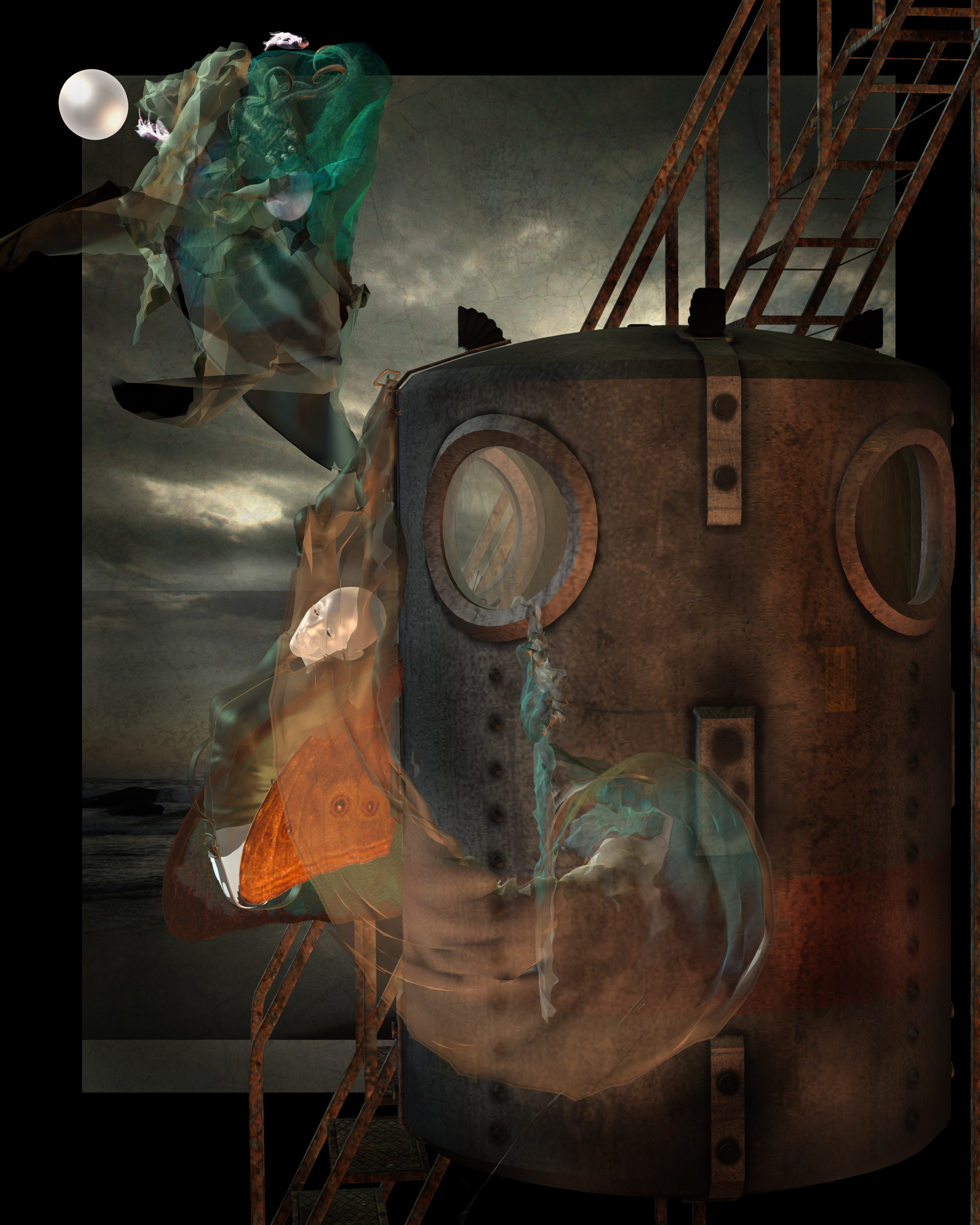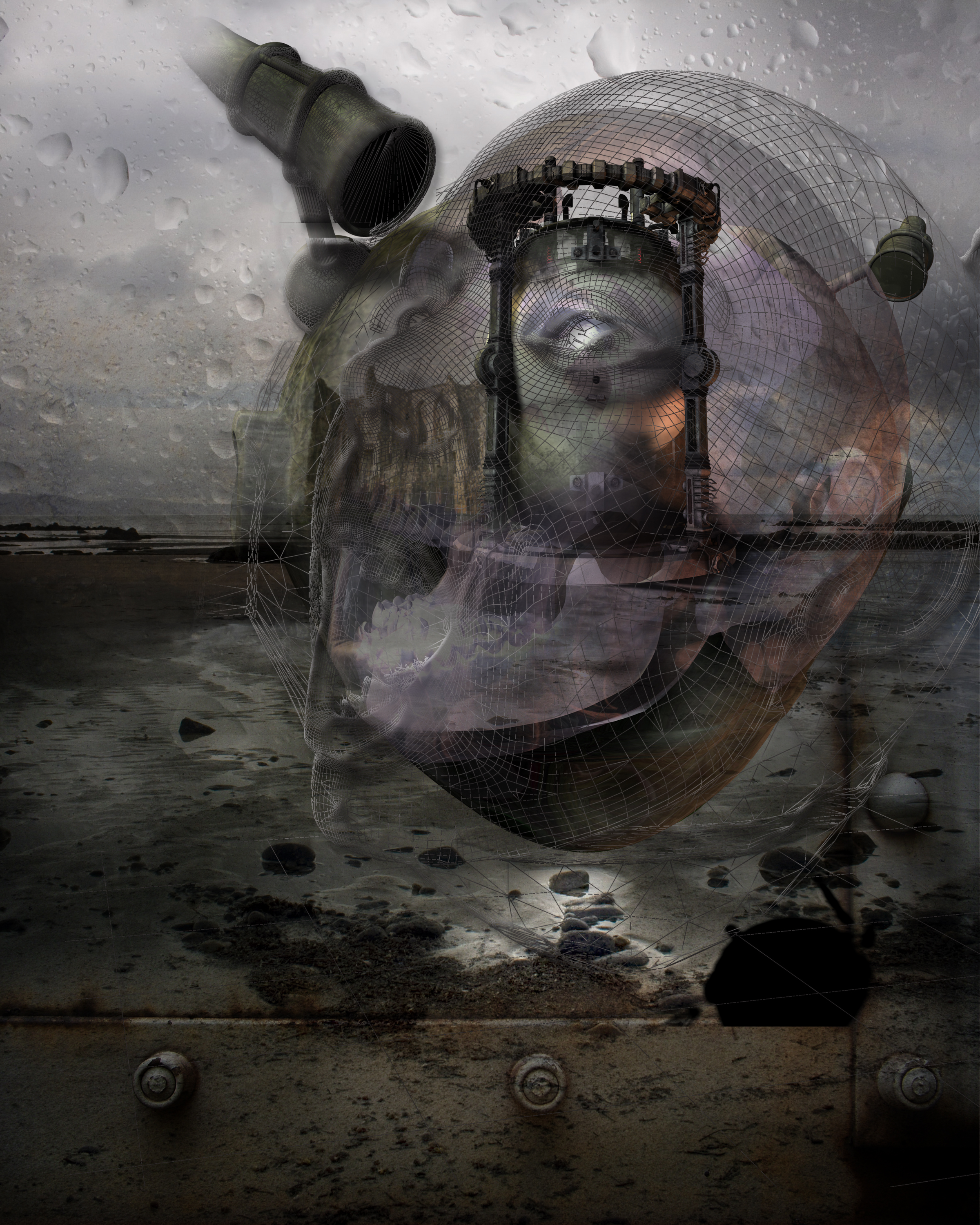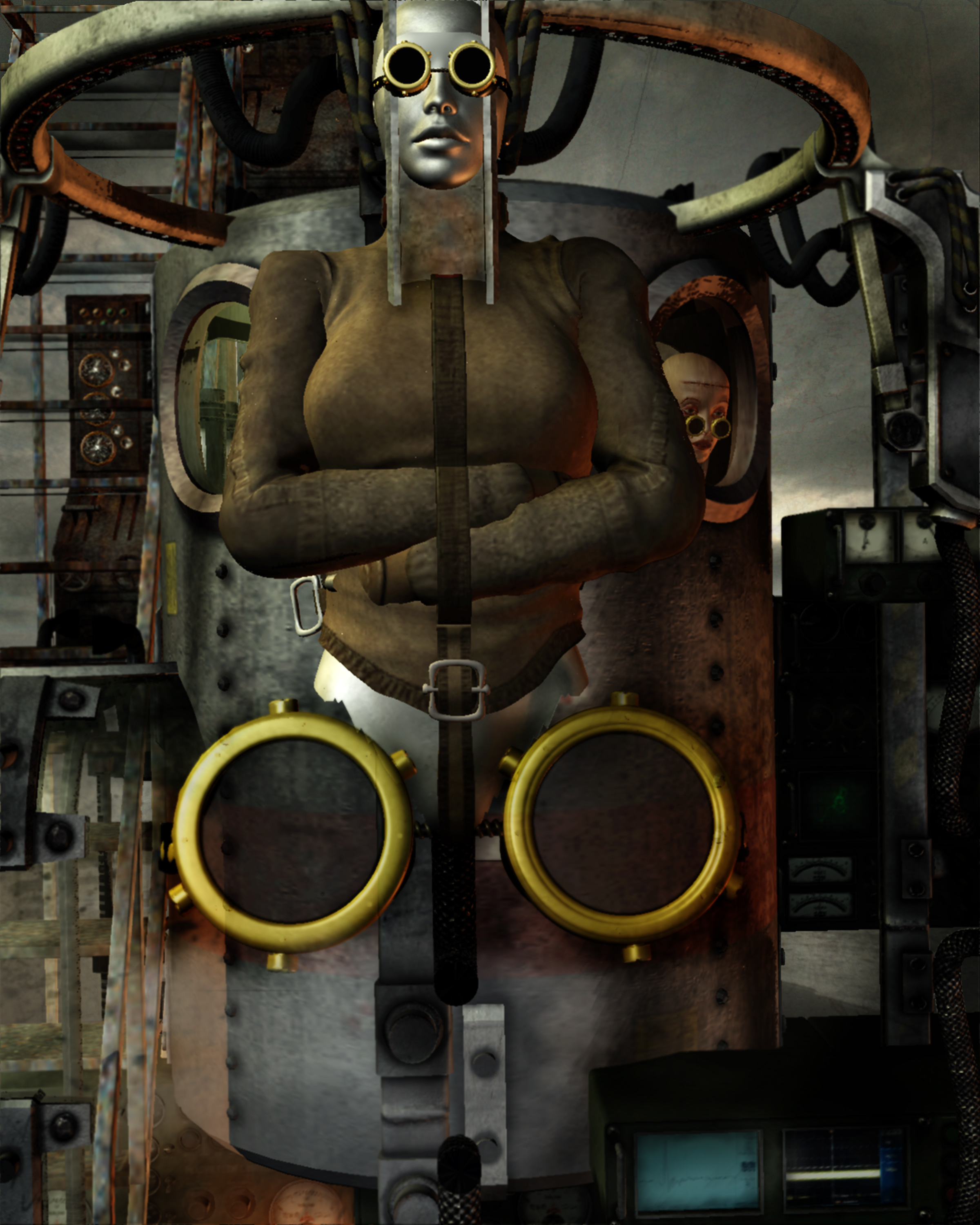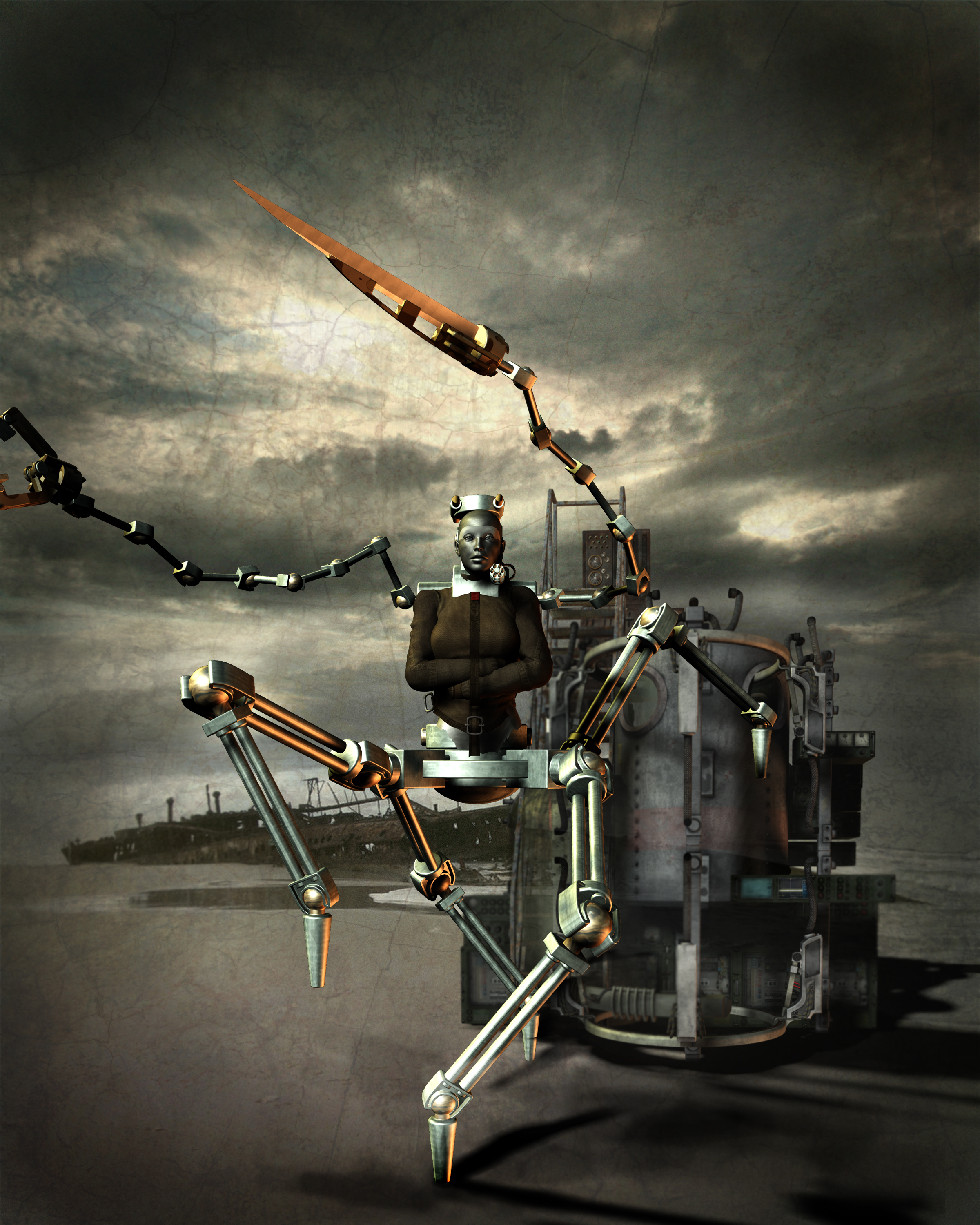Deconstructing Invalid(ation) with blunt and sharpened instruments ~
From Middle French invalide, from Latin invalidus (“infirm, weak”), from in- (“not”) + validus (“strong”)…
Noun: invalid (plural invalids)
- (dated, sometimes offensive) Any person with a disability or illness.
- (dated, sometimes offensive) A person who is confined to home or bed because of illness, disability or injury; one who is too sick or weak to care for themselves.
(archaic) A disabled member of the armed forces; one unfit for active duty due to injury. ~ Wiktionary.com
About six years ago, I had an epiphany. I was lying immobile on a pallet that rolled on tracks inside a narrow, massive metal and plastic tube while my brain was riddled with magnetic waves. I had gone into the tube armed with the disciplined physical stillness of the professional artist’s model I had once been. I needed to provide the clearest image possible; wasting the technicians’ time being twitchy would keep me from being invited back. When I was pulled out of the MRI tube again, I was a slightly different person, although it took time for the change to develop.

Eclipse Cocoon by Selene dePackh
As I lay in the tube that particular day, my thoughts duly disciplined into mindful silence under the barrage of magnetic tapping around my brain, a picture entered my head. I let it hang there and watched it become focused. The pattern of taps became a net in my synesthetic vision, and it draped over the landscape of my neurology like a surveyor mapping out a new country in the rods and chains of colonial exploration. In the 3D artwork I do, those nets are called wireframes, and they define surfaces. This wireframe, casting about in my inner country, measured me for what I would eventually come to grasp as occupation.
I craved prostitutes, base women, because they were deadly and hard and made no personal demands. Nothing was lost when they left. ~ Charles Bukowski
I got out of my hospital gown and stood at the checkout window; the university-sponsored autism study intern loaded my lab-rat cash card with enough for couple of days’ groceries. There was irony in my turning to my autism as a source of income. Years before, when I was still in my ironclad innocence, I’d dabbled in sexwork, and the sense of the job wasn’t entirely unfamiliar, nor was the suppressed surge of financial desperation that had drawn me to it.
I was still recovering from the breakdown of a therapeutic relationship I’d put my faith in for the last two years. The therapist I’d seen was considered an expert in the field of autistic neurology, endorsed by highly respected members of the neuropsychology establishment in my city. The ending of that relationship had left me reeling. Whether it was calculated betrayal by the therapist to punish me for my refusal to accept the realities of my condition, or just plain incompetence, the effect was a scythe through my sense of self, and perhaps it left me disintegrated enough to let a different light in through the slashes, allowing me to see the imprint of the colonist’s surveyors on the surface of my own mind.

Automata by ©Selene dePackh
I had turned to therapy to make sense of a life full of failed promise, and at first, the autism diagnosis I received was a huge relief. I wasn’t a pathologically lazy, immoral slacker. Gradually the shadings of my therapeutic program turned grimmer as I was educated in what autism meant to the professionals who define it. I’m still sorting out some of the shadings in the power game I was subjected to by that therapist, but I do know my sense of self and right to believe I was an equal participant in some kind of shared humanity was severely eroded. Ultimately, I was presented with the choice of accepting that I was a hollow, skillful mimic with no actual capacity for human feelings, pretending even to myself I had any depth of character, or I was the slacker I’d feared I was for decades.
I broke with my therapist with diagnosis intact, and low-end marketable. The only other thing of value I took with me when I left were the now-embarrassing beginnings of a novel I’d begun under the therapist’s encouragement. I’d never written anything beyond a school assignment before, and the work showed it. I can only retrospectively beg forgiveness from those on whom I inflicted early versions.
Given the circumstances, I have to wonder about the enthusiasm with which my therapist encouraged me to send the work out, considering I was told other clients of the practice were published authors. I’m not sure I wasn’t being set up to receive a humbling experience, but in any case, I’m deeply grateful to the five professional writers who eventually took me into their working group and firmly informed me that there was a load of surgery that needed to be done on the manuscript before it went anywhere. That idea was not to be a source of cash or rebuilt confidence anytime soon. The concept ended up gestating another couple of years while I learned some actual word-craft; it was deeply dormant during my brief career as a test subject.
I was familiar with acting as an object/subject of observation in exchange for money. There’s always money flowing into the Autism Cure machine, and autistics can partake in it if they appear sufficiently penitent for the crime of inflicting themselves on society. Some who perform the contrition adeptly enough to swell the hearts of actual fully-humans do quite well with the schtick. I don’t get invited to those neuro-exhibitionist tent shows anymore. I used to, when I was the new freak in town, but I’m not that good. I don’t care to apologize for myself and I’m too autistic to fake it.

Steampunk Cyborg © Selene dePackh
I’m a survivor of sexual abuse; dissociation is another thing I’m very good at, or I couldn’t have kept my leaden calm in that narrow, claustrophobic space as I was groped intimately as it is possible to be, the fingers of the neuro-colonial empire intruding into my very thoughts, probing the parts of my mind aroused by certain stimuli, and the parts which went quiescent. My heart didn’t race; my breathing stayed regular. I served my time in the tube, and then was released to dress myself and get paid. My feet met the floor in an odd way, and I have blank spaces in my memory of the drive home, but at the time I didn’t understand why that new, sentient germ in myself announced it was never going back to the testing facility.
It’s not enough to win; others must lose. ~ Variously misattributed to Gore Vidal, Iris Murdoch, and La Rochefoucauld
More than a year after that moment, the contemporary fiction manuscript I’d resumed working on took a sudden twist out of the grip of my conscious plans and reframed itself, stretching into what would become a series. It had always been a “neuronovel,” a genre whose authors are often not personally affected by, or intimately familiar with, the mental conditions they portray. Very few have seemed to grasp the ethical lapse that puts them in opposition to the Disability Rights movement, whose motto is “Nothing about us without us.” They seem perfectly satisfied to use the colonial occupier’s privilege of writing colorful narratives of the native’s quaint behaviors without bothering to ask those natives what they might think of the accuracy of the observations.
I’d intended to address that injustice, but my work needed more room to make the point. Thaddeus Howze answers the question of what the genre of speculative fiction offers a writer, in part, “The freedom to address ideas and themes which may be considered socially difficult or even taboo with most fiction…”

Bio-mech hybrid by © Selene dePackh
It wasn’t until the initial book of the series was accepted by a publisher that I had to think more closely about genre. The thing in me that was implanted as I lay in the tube began to extend its stiff, cocoon-soft legs and respond to the demands of its instincts. As Howze continues in his essay on speculative fiction, moving on from the steampunk genre, “The other ‘punk genres are generally counter-culture, meaning they fight against whatever the primary culture deems important because it is also stagnating and reductive, making people slaves of the mainstream culture.”
I realized this soft thing beginning to stretch its limbs had craved something to harden itself against. It was born from unarticulated anger, and rebellion was the meat of which it was made—but “punk” is a suffix, not a thing-in-itself in speculative subgenres. My graphic work has been described as cyberpunk, bio-mech, dystopian and neuroqueer, but I hadn’t been comfortable with those descriptors.
I didn’t think of myself in those terms, having been classically trained as an artist, and nurtured with lore from a deep well of blue-blooded Anglo-European family history. As I emerged from the bubble of my privileged background and studied the origins of British punk, I gleaned they are full of rotted history—dusty with its moldy filth from the centuries of Enclosure. The chronicles of British gentrification reach back 800 years, and the stories of those who’ve been expelled from every common paradise have an underlying resonance. I grasped why my neuronovel needed to become something with more edge.
To have a punk identity is to be defiantly worthless to the system. Punk is the designated loser who makes everyone inside the opportunity apparatus feel superior for being so well behaved. Punk is outside the sanctioned machine, whether it chose to be or not, and comes to embrace the outcast in itself. In its most powerful incarnation, it takes a sledgehammer to the mechanisms of the ruling order.
Autistics are generally considered a tragic burden on the greater whole. We may occasionally transcend the negatives of our condition and make some contribution to the larger good, but a low murmur from the hive says the mass of us would be better unborn. Adult autistics have an unemployment rate of roughly four out of five. My neurotype doesn’t take the yoke well. It gives us a perspective and analytical mode of information-processing that’s instinctively read as defiant by systems management.
The standard American treatment for autistics who fail to socially integrate is an immersive, dog-training style of behaviorism whose stated purpose is to make us compliant and “indistinguishable from our peers.” “Peers” mean non-autistics, who are always on a higher level, so the term is a “believe nothing I say” recursive lie. If we attempt to counteract the message with other stimuli than the endless demand to comply with our own destruction, it only escalates the invasiveness of the brainwashing. This is how autistics regularly find ourselves in restraints, for our own good of course, to prevent us from self-harm.
I spent a long time learning about methods of colonial rule after I emerged from that tube. I saw my true peers as they tried to keep their integrity in the face of carefully scripted, socially-approved depersonalization, and the thing in me took more definite shape.
The narrative fighting its way out into the written word had begun to harden its carapace into a specifically neurological punk confrontation. The neuronovel I’d been nurturing had expanded and fused with punk ethos and speculative independence, and I had an answer to how I’d describe my genre.
We sharpen each other like knives. ~ Tom Waits
Neuropunk isn’t anything new. I’ve just pointed at it and called it a name.
Craft is important if art is to find its way into the mind of its target, finding the crevices where a sliver of new light can slip in. Punk needs its prying blades as well as its sledgehammers. Intellectual rigor is essential, as is honesty. Critics who value your work above your feelings and have the strength and generosity to argue with you about it can be the greatest gift you’ll ever get. Integrity takes more courage than anything—but the work still has to seduce its way in the door.
The personal war against being colonized doesn’t end until we lose it to the swarms within the loam. The arguments of the disabled often have a particular edge; words are the weapon that generally comes most readily to hand for the impaired. The snarl of a crippled animal has a sincere and trenchant menace. It’s worthwhile for us to practice the art of saving ourselves.
I’m not wise. I don’t claim anything but the blank, unblinkingly analytical bent of my kind. Whatever beauty may be publicly seen in the work I produce was nurtured forth by others who helped me learn to transcribe in their language, and to translate the flood of alien growls, chirps and gurgles native to me into something graspable by the larger world.
All images ©Selene dePackh 2009-2017 (all rights reserved)
Selene dePackh is a writer, graphic designer and illustrator. You can find her at www.neuropunk.xyz (The neuropunk address will link through to Selene’s http://www.aspinthegarden.com webpage while under construction.)
Troubleshooting, the first book of her Glitch in the System series, will be available for pre-order from Reclamation Press.
